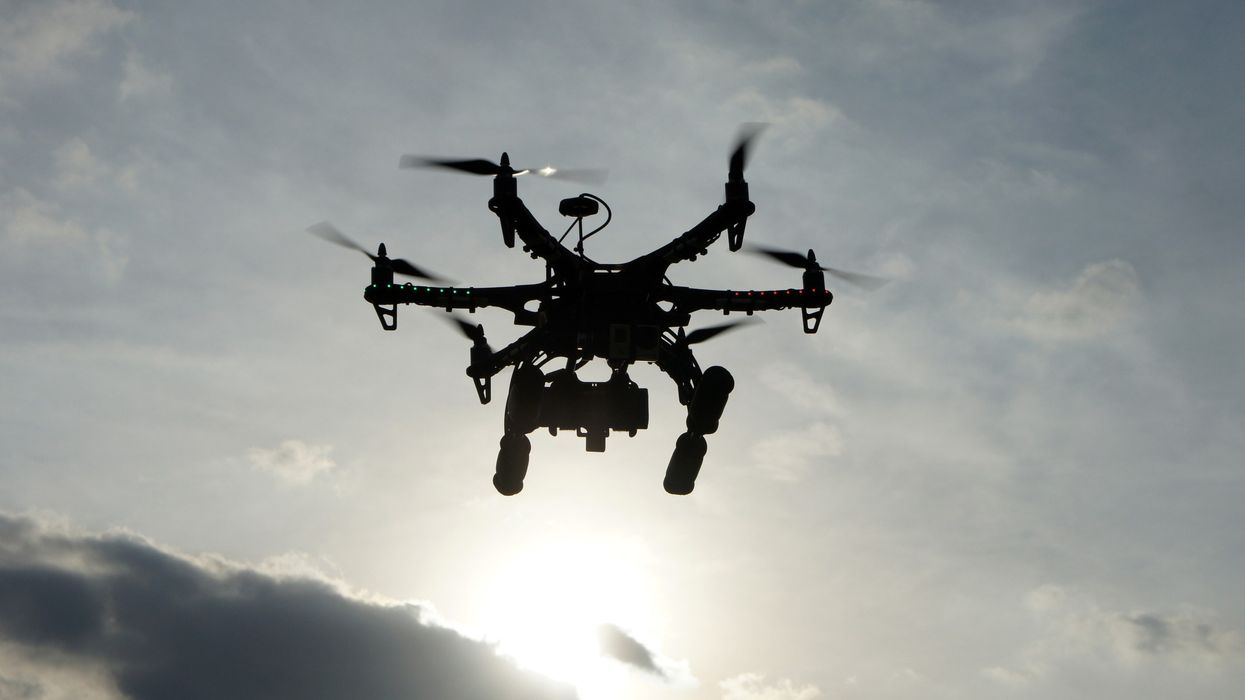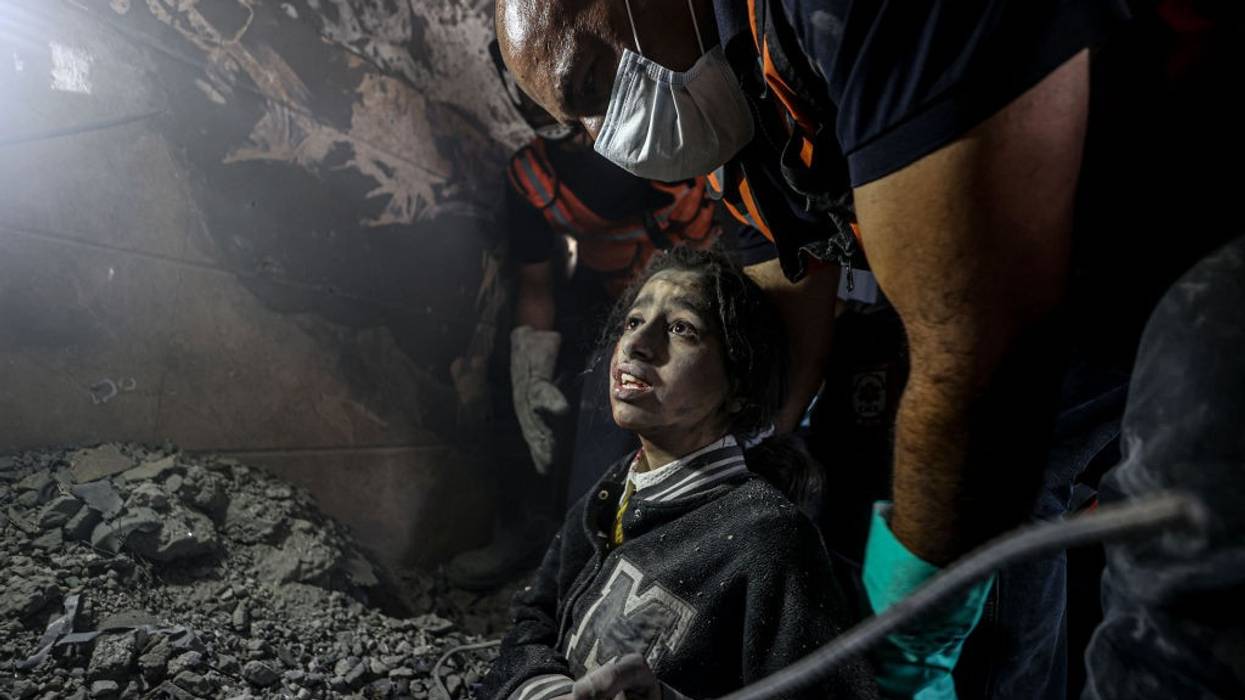The statement proclaims: "For many of us, entering this field of study was motivated by a desire to improve the material, social, and political conditions of life for children globally. We cannot, therefore, sit by as the situation in Gaza continues to deteriorate."
Our research on Palestinian childhood shows the incredible capabilities of Palestinian children to negotiate meaning and find beauty in the most traumatic of conditions. It looks at Palestinian children as active agents and meaning-makers who, despite the circumstances of the birth lottery, manage to find and cultivate beauty in their lives.
It focuses on how the adults around these children—parents, grandparents, carers, teachers, politicians—fearful for what the future holds for this next generation, protect and control this space of perceived innocence.
Our research, focusing on child migration, shows how border regimes operate through practices of containment, forced immobility, and the denial of futures—all strategies operating in occupied Palestine.
But children and young people, whether stuck in place or forced to move, do their utmost to nourish and reclaim futures, not least through caring for people, places, and social justice, much as we see right now in Gaza.
Moral duty
As researchers who have built our academic careers not only studying childhood, and doing what we do to help improve the conditions of marginalized children's lives, including those in Palestine, we view it as our moral duty to speak out and demand our governments put an immediate end to the Israeli campaign against Gaza.
The unprecedented scale and violence of these attacks compound the longstanding suffering of Palestinians since the 1948 Nakba. Yet, there is a lack of will, even a refusal, on the part of many powerful Western governments to call for a ceasefire. Now is not the time for our silence.
The First Intifada, which broke out in December 1987, generated a mass of interest and research on Palestinian children, both from international academics and international non-governmental organizations. The research and resulting social welfare programs either frame children as victims of the conflict or active participants. But neither adequately addresses the contexts or complexities of Palestinian children's lives.
No one is born a victim; people are made vulnerable and victimized by acts of violence and repression, just like those Palestinian children and adults forced into life imprisonment in Gaza, Israel's open-air prison.
In the public imagination, there remains an unquestioned affinity between the concept of "victim" and "child," as both are paradigmatic concepts of passivity and innocence. Viewed as the "ideal victims," children are often constructed as vulnerable, defenseless, innocent, and hence worthy of sympathy and compassion, while adults—especially men—are not.
We have seen this adult-child binary (as well as the gender binary) play out in humanitarian responses in Muslim countries, such as Afghanistan and Iraq, whereby women and children are constructed as perfect victims, worthy of international aid and in need of saving, while adult men are portrayed as violent and responsible for their own suffering.
Our research in the West Bank found that children (especially those under 10) are often depoliticized and viewed as agentless victims. Therefore, projects involving children are popular with Western funders—both individuals and donor organizations—as they allow them to shed colonial guilt without addressing the structural violence of the Israeli occupation.
No one is born a victim; people are made vulnerable and victimized by acts of violence and repression, just like those Palestinian children and adults forced into life imprisonment in Gaza, Israel's open-air prison.
At the same time, children and young people have been the driving force of the two Intifadas. Palestinian children make complex decisions about how to survive, act, and resist while enduring unimaginable violence and subjugation and have inspired supporters of liberation, justice, and freedom around the world.
Cold, reckless calculation
In the current war on Gaza, one Palestinian child is killed every 15 minutes, in what Gaza-based surgeon Ghassan Abu-Sittah has called a war on children and Israeli historian and expert in Holocaust studies Raz Segal deemed a “textbook case” of genocide.
Despite the high stakes, no one with the power to avert this genocide is looking out for Gaza's children. It is as if these young people are not seen as children or are excluded from the category of childhood altogether. This can be understood as an effort of Israel and its Western backers to sidestep humanitarian law and public sympathies for "innocent children."
It is evident that Israel’s current actions are not about self-defense.
Given the scale of the suffering of children in Gaza, the refusal of the UK government and the supposedly left-leaning leader of the opposition to support calls for a ceasefire has been horrifying but not surprising.
It was, after all, the British government’s
Balfour Declaration, a cold and reckless calculation of British imperial interests, that laid the foundation of the Israeli state by proclaiming support for “the establishment in Palestine of a national home for the Jewish people” with little consideration of its
indigenous Palestinian population.
While the British government has never really pressured Israel toward a ceasefire in past escalations, it has at least pretended to care about civilian loss and "innocent children" and made noises about peace. The Labour Party has never been this timid. The colonial mindset remains deeply entrenched, as do the cold calculations that allow and justify the violence.
Decontextualizing and dehistoricising the current atrocities and framing them as the Israel-Hamas war or the Israel-Gaza war, frames all Gazans, including the 47 percent under 18, as Hamas and hence complicit in their own suffering. This plays straight into Israeli Prime Minister Benjamin Netanyahu's expansionary project of annexing the occupied Palestinian territories
For it is evident that Israel’s current actions are not about self-defense. Thousands of Palestinians from Gaza with Israeli work permits were rounded up, imprisoned, and sent back to the besieged strip, and medical visas were canceled for those getting treatments in Palestinian hospitals in East Jerusalem.
Since the current escalation, at least 150 Palestinians have been killed in the occupied West Bank. As Hamas wields no power in the West Bank, these deaths—like those of the nearly 4,000 Gazan children killed—do not fit neatly into the narrative of Israel defending itself and hence remain unaccounted for.
Intimidation tactics
Using the 7 October date as the reference point for the start of escalation omits the history of 75 years of Israeli settler colonialism in Palestine and the 17-year blockade that has suffocated the Gaza Strip. This decontextualization stops the world from viewing the Palestinian cause as a just one, therefore stripping it of the right to receive international support, such as the demand for a ceasefire.
Writing this piece as a Muslim and an anti-Zionist Jew, we await the backlash and the hate mail. The hypocrisy over free speech and academic freedom has hit a new low, as student groups in the UK are banned for their pro-Palestinian stance and U.S. universities lose funding for not condemning the Hamas attacks fast enough.
Unsurprisingly, it is Palestinian academics facing the brunt of this repression. As a result of signing the statement calling for a ceasefire, our distinguished Palestinian colleague Professor Nadera Shalhoub-Kevorkian, was asked to step down from her position at the Hebrew University of Jerusalem.
The news was circulated in the Israeli mainstream media, leading to further threats against Shalhoub-Kevorkian and her family.
Such intimidation tactics are also being used against academics of color. In the UK, two scholars of South Asian descent were singled out for their lawful expressions of solidarity with Palestinians on social media, and harassed by the Daily Mail, the UK’s largest tabloid.
Retaliations against non-Zionist Jews who speak out are also on the rise; they are denounced as traitors in Israel, and face real threats to their livelihoods and security from the state and its right-wing backers.
The threat to academics’ job security, however, pales in comparison to the recent horrors unleashed on the besieged Gaza Strip.
We therefore affirm the calls of the statement of international childhood scholars and students. We urgently need a ceasefire and an end to the Israeli bombing campaign.
Palestinian children’s lives are precious. All Palestinian lives are precious.




